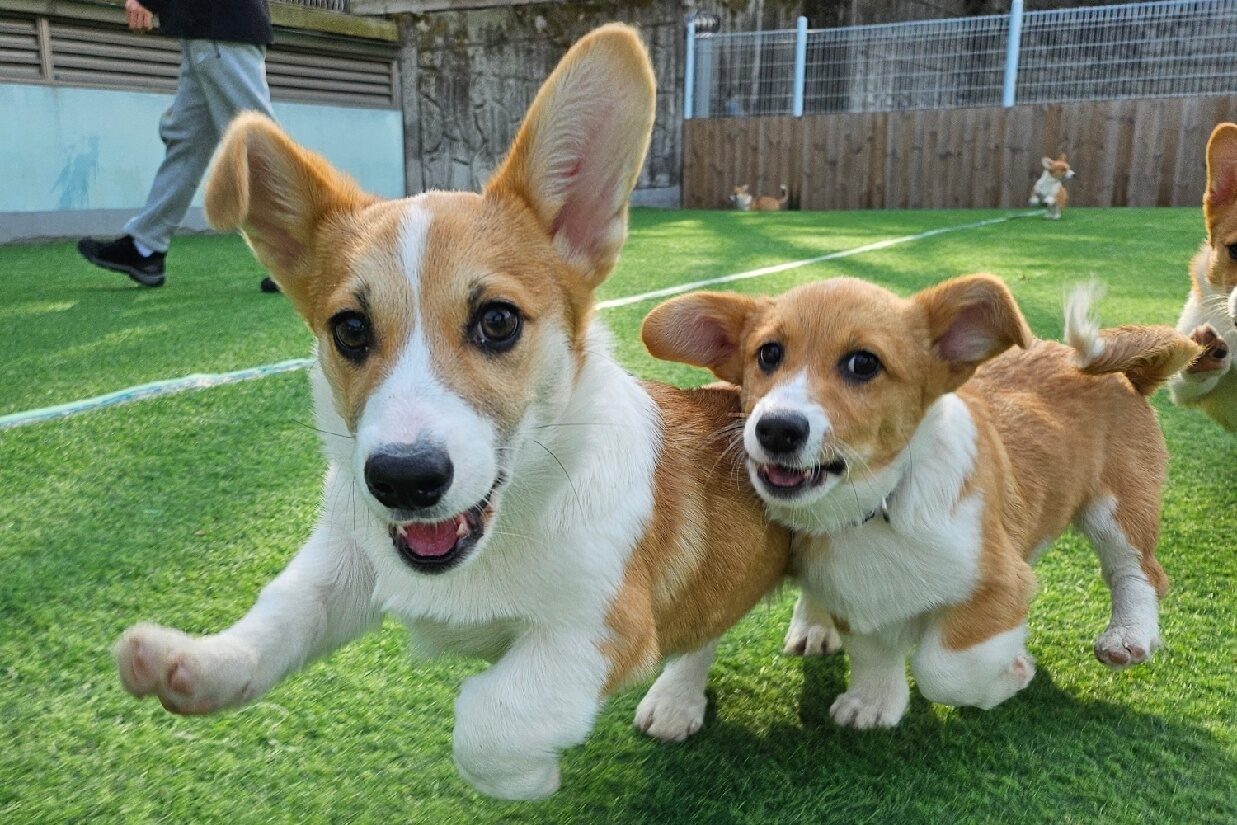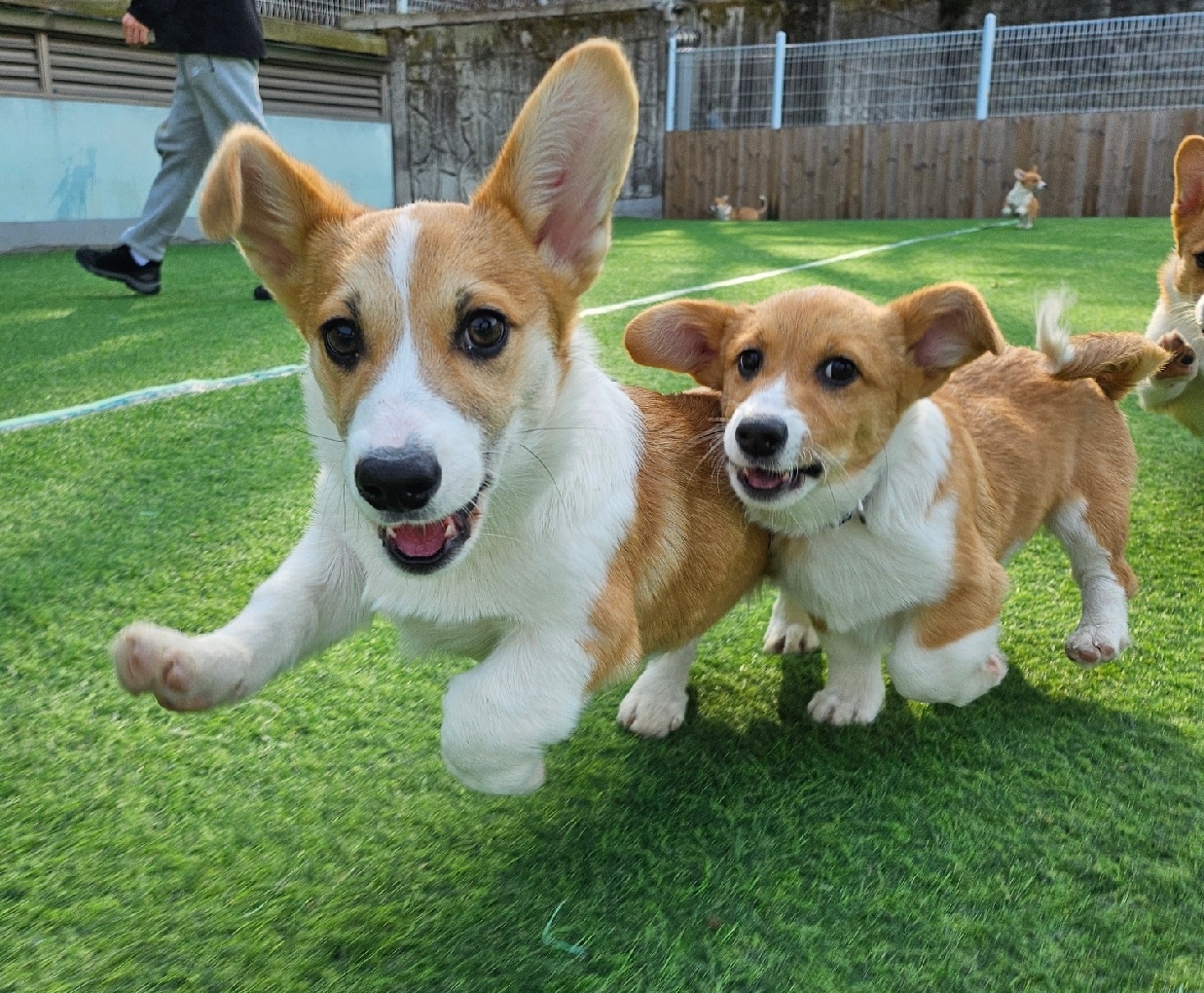
10 Questions to Ask Before Adopting a Rescue Dog
Essential Tips to Help You Find the Perfect Match and Prepare for Life with Your New Furry Friend
Adopting a rescue dog is a life-changing decision—for you and your new furry friend. At Korean K9 Rescue (KK9R), our dogs come from challenging environments, such as puppy mills, the dog meat trade, or high-kill shelters in South Korea, and they need compassionate adopters who are ready to help them adjust to a new life. Asking the right questions before adopting is the key to building a strong, healthy bond and setting realistic expectations for both you and your dog.
1. What is this dog’s background?
Many KK9R dogs have lived in harsh or inhumane conditions, including puppy mills or overcrowded shelters. Some may have had little to no exposure to human care, training, or socialization. Understanding where your dog comes from will help you empathize with their behavior and adapt your approach to their unique needs.
2. What are their specific care requirements?
Every KK9R dog begins their journey with a fresh food diet provided by Just Food For Dogs. These human-grade meals are thoughtfully created by veterinary nutritionists and feature high-quality, recognizable ingredients you can trust. Continuing this diet is recommended for their health. Additionally, some dogs may need special care based on their past—such as extra patience with grooming or acclimating to a leash.
3. Are there any medical needs or concerns?
Some rescue dogs arrive with health challenges, from skin issues to dental needs. KK9R ensures all dogs are vaccinated, spayed or neutered, and receive necessary medical treatments, but it’s important to discuss ongoing care. Regular vet visits and any additional checkups will help your dog thrive.
4. How do they adjust to new environments?
Transitioning to a home environment can take time, especially for dogs who’ve never lived indoors. Some of our dogs may be hesitant about new sights, sounds, or even basic things like stairs or a TV. Patience, routine, and a calm, nurturing environment are crucial during this adjustment period.
5. What is their temperament like?
Each dog’s personality is unique, shaped by their experiences and breed traits. Some dogs may be naturally shy and reserved, while others are outgoing and full of energy. For example, Jindos are known for their loyalty but can be cautious around new people. Understanding a dog’s temperament helps you determine if they’re a good fit for your home and routine, whether you’re an active family or prefer a more laid-back companion.
6. Do they get along with children or other pets?
Because of their history, many KK9R dogs haven’t been exposed to children or other animals. While we do our best to assess compatibility, adopters should be prepared for a gradual introduction and potential behavioral adjustments. Always supervise initial interactions with kids, cats, or other pets.
7. What kind of training have they received?
Most of our dogs start basic training in foster homes, including crate training. We ask fosters to follow a routine of 2 hours out and 4 hours in the crate throughout the day to build structure. However, additional training at home—such as leash training or housebreaking—will likely be necessary. Remember, consistency and positive reinforcement go a long way.
8. What type of home environment is best for them?
While some dogs adapt well to apartment living, others may need a yard or more space to roam. Discussing the dog’s energy levels, exercise needs, and temperament with KK9R can help determine if your home is the right fit.
9. Are there specific behavioral traits to know about?
Rescue dogs often carry the emotional and physical impact of their past. Puppy mill survivors, for instance, may need extra patience to adjust to potty training or leash walking due to limited exposure to these routines. Dogs with trauma may also have triggers, such as loud noises or unfamiliar environments. Being aware of these traits ahead of time helps you develop a care plan and create a safe, supportive space for your new companion.
10. What support is available after adoption?
Adopting a rescue dog is a lifelong commitment, but you’re not in it alone. KK9R offers guidance and support post-adoption, from training tips to dietary recommendations. If you ever need help, our team is just a message away.
Final Thoughts
Adopting a rescue dog is incredibly rewarding, but it’s also a big responsibility. By asking the right questions and preparing for your dog’s unique needs, you can create a safe and loving environment where they can thrive.
Ready to meet your match? Meet our adoptable dogs and take the first step toward giving a rescue dog the second chance they deserve.

